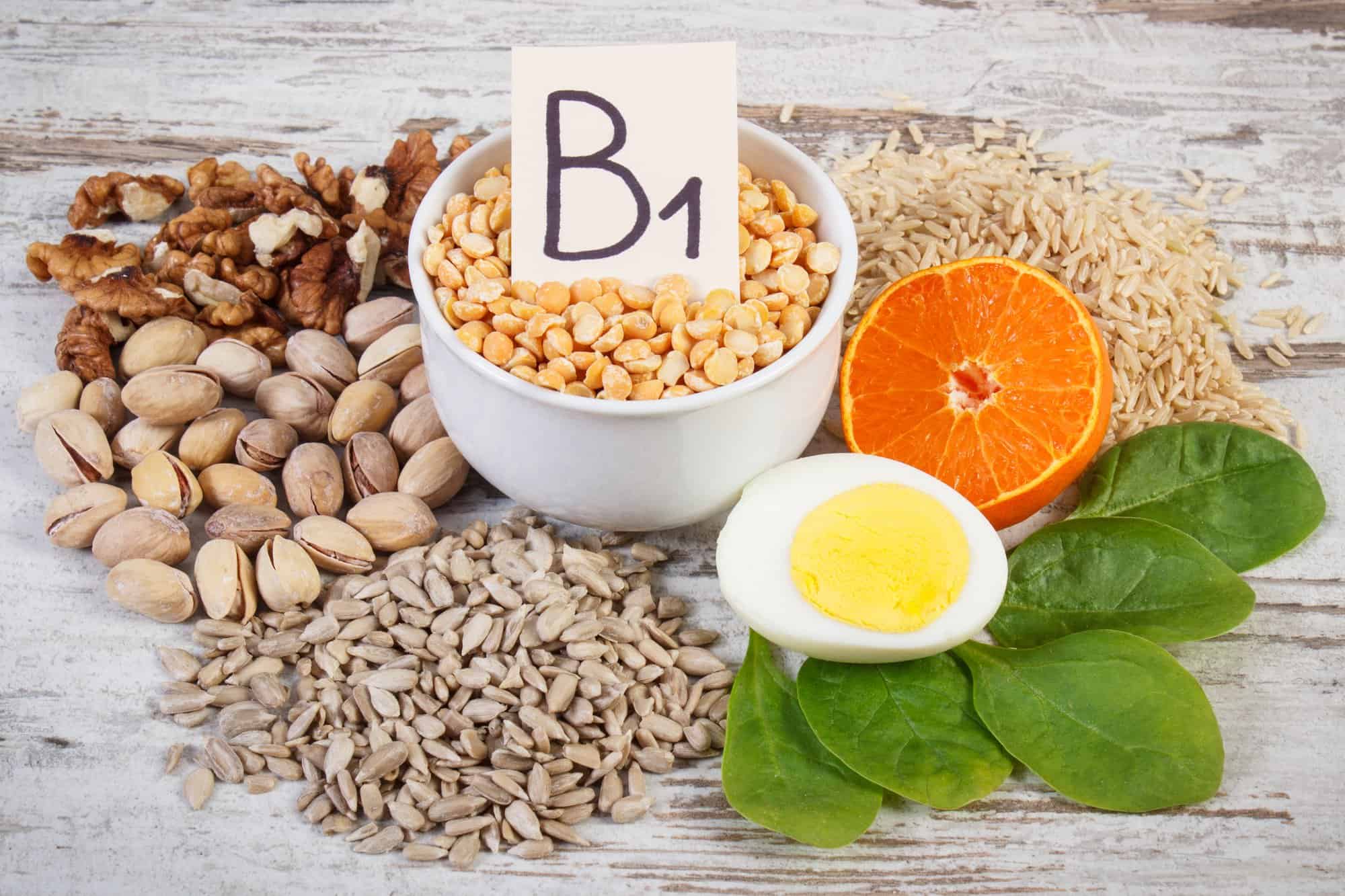Vitamin B1: The Essential Nutrient for a Healthy Body

The Importance of Vitamin B1
Vitamin B1 is essential for maintaining a healthy body and preventing various health problems. It supports the proper functioning of the heart, muscles, and brain, and helps in the conversion of food into energy. It also plays a crucial role in maintaining a healthy nervous system and aiding in the production of certain hormones.
Vitamin B1 Deficiency
A deficiency of vitamin B1 can lead to various health problems, including beriberi, a condition that affects the nervous system and the heart. Symptoms of vitamin B1 deficiency include fatigue, muscle weakness, irritability, and confusion.
Sources of Vitamin B1
Vitamin B1 can be found in many foods, including whole grains, legumes, nuts, seeds, and fortified cereals. Pork, liver, and other organ meats are also good sources of vitamin B1. However, some foods, such as refined grains and processed foods, may have lower levels of vitamin B1 due to processing.
Recommended Daily Intake
The recommended daily intake of vitamin B1 varies depending on age and gender. For adult men, the recommended daily intake is 1.2 mg, while for adult women, it is 1.1 mg. Pregnant and breastfeeding women may require higher levels of vitamin B1.
The Benefits of Vitamin B1
Supports Energy Production
Vitamin B1 is essential for converting carbohydrates into energy, which is vital for maintaining an active and healthy lifestyle. It helps in the breakdown of glucose into usable energy and supports the proper functioning of the muscles and heart.
Supports Nervous System Health
Vitamin B1 plays a crucial role in maintaining a healthy nervous system. It is involved in the production of neurotransmitters, which are essential for transmitting signals between nerve cells. A deficiency of vitamin B1 can lead to nerve damage and neurological problems.
Aids in Digestion
Vitamin B1 is essential for maintaining a healthy digestive system. It helps in the production of hydrochloric acid, which is necessary for the digestion and absorption of nutrients. It also aids in the proper functioning of the liver and pancreas.
Supports Cardiovascular Health
Vitamin B1 is essential for maintaining a healthy heart. It helps in the proper functioning of the heart muscles and supports the production of red blood cells. A deficiency of vitamin B1 can lead to cardiovascular problems and heart failure.
How to Incorporate Vitamin B1 into Your Diet
Incorporating vitamin B1 into your diet is relatively easy, as many foods contain this essential nutrient. Whole grains, legumes, nuts, and seeds are excellent sources of vitamin B1. Pork, liver, and other organ meats are also good sources of vitamin B1.
Recipes Rich in Vitamin B1
Here are some recipes that are rich in vitamin B1:
- Black Bean Salad - made with black beans, peppers, onions, and a thiamine-rich dressing
- Pork Tenderloin with Whole Grain Mustard Sauce - made with pork tenderloin, whole grain mustard, and thiamine-rich herbs and spices
- Whole Grain Pasta with Spinach and Pine Nuts - made with whole grain pasta, spinach, pine nuts, and thiamine-rich herbs and spices
The Pros and Cons of Vitamin B1 Supplements
Vitamin B1 supplements can be beneficial for people who are deficient in this essential nutrient. However, taking too much vitamin B1 can lead to adverse health effects, such as nausea, vomiting, and skin rash. It is best to consult with a healthcare professional before taking any vitamin B1 supplements.
Pros of Vitamin B1 Supplements
- May help prevent vitamin B1 deficiency
- May improve energy levels
- May support nervous system health
Cons of Vitamin B1 Supplements
- May cause adverse health effects when taken in large doses
- May interact with certain medications
- May not be necessary for people who consume a well-balanced diet
FAQs
Q: What foods are rich in vitamin B1?
A: Whole grains, legumes, nuts, seeds, and fortified cereals are good sources of vitamin B1. Pork, liver, and other organ meats are also rich in vitamin B1.
Q: What are the symptoms of vitamin B1 deficiency?
A: Symptoms of vitamin B1 deficiency include fatigue, muscle weakness, irritability, confusion, and heart problems.
Q: Who is at risk of vitamin B1 deficiency?
A: People who consume a diet low in thiamine-rich foods, such as whole grains, legumes, and nuts, are at risk of vitamin B1 deficiency. Alcoholics and people with certain medical conditions, such as Crohn's disease and HIV/AIDS, may also be at risk of vitamin B1 deficiency.
Q: Can vitamin B1 supplements help with weight loss?
A: There is no evidence to suggest that vitamin B1 supplements can help with weight loss. A well-balanced diet and regular exercise are the best ways to achieve and maintain a healthy weight.
